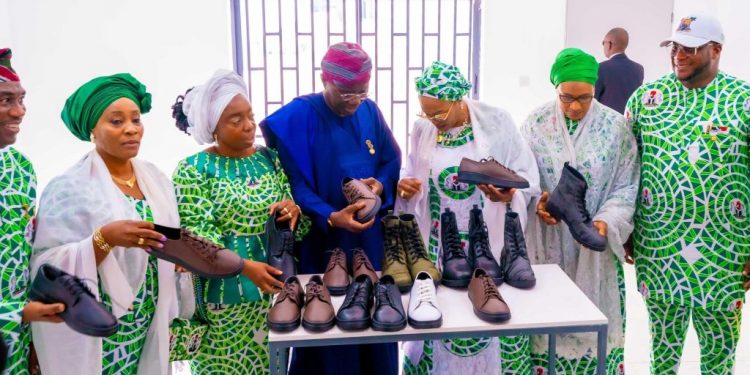Lagos has taken a major step in industrialisation with the commissioning of a state-of-the-art leather processing and manufacturing factory in Mushin, a bustling commercial hub of the state. The facility, developed by the administration of Governor Babajide Sanwo-Olu, was inaugurated by the First Lady during her official visit to Lagos.
With the capacity to create 10,000 direct jobs and generate over $250 million in annual export earnings, the factory is expected to establish Lagos as the leading leather logistics capital in West Africa. The hub will serve as a centre for processing hides and skins into finished products such as footwear, bags, belts, packaging and other accessories.
Seventy percent of the employment opportunities at the hub have been reserved for women and young people. More than 150,000 artisans are also set to benefit from training and start-up support designed to help them compete in local and international markets. The facility has been named after the First Lady in recognition of her longstanding work in grassroots empowerment and social investment.
Speaking at the inauguration, the First Lady described the project as a demonstration of Lagos State’s ability to turn challenges into opportunities. She noted that the initiative aligns with the national agenda to drive economic diversification through industrialisation, manufacturing, creative arts and innovation. She emphasised that leatherwork, a traditional craft that has endured for centuries, would now be given modern backing to scale up production and strengthen small and medium-sized businesses.
She added that the hub stands as a symbol of collaboration between government and citizens to create prosperity, urging those who will work there to remain committed to excellence, continuous learning and competitiveness in global markets.
Governor Sanwo-Olu explained that the hub was designed to be more than a factory, describing it as a platform for innovation, training and SME growth. He stressed that beyond exports, the project will boost local consumption, reduce poverty and raise living standards across Lagos. According to him, hides and skins that previously left Nigeria unprocessed will now be transformed into world-class products proudly branded “Made in Lagos, Made in Nigeria.”
The governor said the facility forms part of a broader strategy to move Nigeria’s economy away from dependence on oil by driving non-oil exports and supporting entrepreneurs. He noted that the success of the hub would ultimately be measured by the number of households lifted above poverty through opportunities in the leather value chain.










